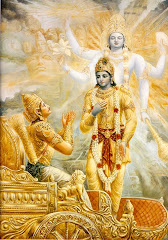"But
man is not made for defeat," he said. "A man can be destroyed but not defeated." - Ernest Hemingway, The Old Man and the Sea.
Great
quote.
Born (to Clarence and Grace Hemingway) on July 21, 1899,
in Cicero (now in Oak Park), Illinois, Ernest Miller Hemingway served in World
War I and worked in journalism before publishing his story collection In Our
Time. He was renowned for novels like The Sun Also Rises, A
Farewell to Arms, For Whom the Bell Tolls (nominated for the
Pulitzer Prize), and The Old Man and the Sea, which won the 1953
Pulitzer.
Clarence and Grace Hemingway raised their son in this
conservative suburb of Chicago, but the family also spent a great deal of time
in northern Michigan, where they had a cabin. It was there that Hemingway
learned to hunt, fish and appreciate the outdoors. In high school, Hemingway
worked on his school newspaper, Trapeze and Tabula, writing primarily
about sports. Immediately after graduation, the budding journalist went to work
for the Kansas City Star, gaining experience that would later influence
his distinctively stripped-down prose style. ~ While working as a foreign
correspondent for the Star, Hemingway made the acquaintance of many of
the great writers and artists of his generation, such as F. Scott Fitzgerald, Ezra
Pound, Pablo Picasso and James Joyce.
Hemingway's first novel, The Sun Also Rises (1926)
is widely considered his greatest work, artfully examining the postwar
disillusionment of his generation. ~ His celebrated World War I novel A
Farewell to Arms (1929), secured his lasting place in the literary canon. ...
When he wasn't writing, Hemingway spent much of the 1930s chasing adventure:
big-game hunting in Africa, bullfighting in Spain, deep-sea fishing in Florida.
In 1951, Hemingway wrote The Old Man and the Sea, which would become
perhaps his most famous book, finally winning him the Pulitzer Prize he had
long been denied.
In 1954, Hemingway won the Nobel Prize (in Literature) "for
his mastery of the art of narrative, most recently demonstrated in The Old Man
and the Sea, and for the influence that he has exerted on contemporary
style".
The Old Man and the Sea & my twopenceworth: Among
Hemingway's later works, the most outstanding is (perhaps) this short novel, The
Old Man and the Sea - the story of a Cuban fisherman who refuses to be
defeated by nature.
"He was an old man who fished alone in a skiff in the
Gulf Stream and he had gone eighty-four days now without taking a fish. In the
first forty days a boy had been with him. But after forty days without a fish
the boy's parents had told him that the old man was now definitely and finally
salao, which is the worst form of unlucky, and the boy had gone at their orders
in another boat which caught three good fish the first week. It made the boy
sad to see the old man come in each day with his skiff empty and he always went
down to help him carry either the coiled lines or the gaff and harpoon and the
sail that was furled around the mast. The sail was patched with flour sacks
and, furled, it looked like the flag of permanent defeat."
Though
a slim volume, do not expect it to be a breezy read. Reading a classic requires
lot of patience; this novella (Hemingway's last major work of fiction and
published in his lifetime) packs in a lot... while meticulously chronicling the
story of an old fisherman's journey - his long and lonely struggle with a giant
Marlin and the sea, and his victory in defeat. [~ Hemingway said, "I was
trying to show the experience of the fisherman so exactly and directly that it
became part of the reader's experience."]
The Old Man and the Sea is in many
ways a deceptively simple tale (especially given Hemingway's use of sparse,
straight-forward prose). Santiago, the old Cuban fisherman, has had a
significant run of bad luck (i.e., 84 days without taking a fish). "Everything about him was old
except his eyes and they were the same colour as the sea and were cheerful and
undefeated." Attempting to change his luck, he decides to take his
skiff further out than he has ever gone before, "beyond all the people of the
world." Eventually, he lands the largest Marlin he's ever
seen and the bulk of the narrative details his epic struggle to reel in the
fish and get it back to shore. “The fish is my friend too...I have never seen or heard of
such a fish.”
"He rested sitting on the un-stepped mast and sail and
tried not to think but only to endure."
"Every day is a new day. It is better to be lucky. But I
would rather be exact. Then when luck comes you are ready."
... It takes some getting used to - in order to feel a
connection to the story and/or be moved by the restrained power of the
narrative.
Despite the many hardships and struggles that Santiago
faces, or the epic battles he endures on the open sea (what with the elements,
sharks and so on), one does not feel sorry for him. One does not pity him. ~ He
is simply doing what he loves to do, it gave him purpose and fulfillment in
life: struggling with an iron will to accomplish his goal. "I may not be as strong as I think,
but I know many tricks and I have resolution."
The struggle is long, hard and difficult... but the
reader only feels a great deal of admiration for Santiago. He is thin and
gaunt. He lay cramping himself against the line with all of his body. The rope cuts
his hands. His muscles strain. He talks to himself. He has no food or water.
And yet he does not give up. He never loses hope or
faith in himself.
"And
what beat you, he thought. 'Nothing,' he said aloud. 'I went out too
far.'"
"It is good to have an end to journey toward; but it is the journey that matters, in the end." - Ernest Hemingway.
The author's writing style coupled with spare dialogue and
sparse simple prose can make this one a somewhat difficult-to-comprehend read:
one that may not quite stir much within every reader. (~ So you
will have to read and decide for yourself.)
However, this story can also mirror man's
struggle with challenges (including old age and fading memory), and his
indomitable will to win - with resoluteness or pride, no matter the odds. ~ To
not be defeated. Come what may.
There's also reminiscing of/for youth and vitality. ~ Santiago
is mentor and old age; Manolin, the boy, is pupil and youth. He loves and cares
for Santiago. In him, the old man wishes to entrust his skill as a fisherman, and
his memory.
Maybe
the story in a way (metaphorically) also chronicles Hemingway's
own struggle with depression and numerous conditions and ailments... that slowly
but surely sapped his burly body and mind - even at the peak of his literary
career. ["Most
people were heartless about turtles because a turtle's heart will beat for
hours after it has been cut up and butchered. But the old man thought, I have
such a heart too." - Ernest
Hemingway, The
Old Man and the Sea.]
One
never knows.
Santiago survives on a bottle of water and on (raw) dolphin
fillets and a couple of flying fish (and eventually some of the marlin's flesh
to sustain himself)... but ultimately succeeds in hauling the giant Marlin to
shore to the collective wide-eyed admiration and awe - of tourists and
fishermen alike. Upon his return (to his shack) delirious and exhausted,
Santiago dreams of his youth - of lions on an African beach.
Though the great fish is now merely an 18-feet-long skeleton,
its flesh eaten away by mako sharks, it is nevertheless a prized catch if there
was one. It is the stuff legends are made of; it is (after all) the largest fish
the villagers have ever known to come out of the Gulf Stream. It is to become a
mute (yet permanent) testimony to Santiago's greatness. "There has never
been such a fish." ~ It represents and brings Santiago the intangibles he
craves... to give his existence meaning and dignity. It represents perseverance,
hard work and also highlights the indomitable nature of the human spirit. ~ The
boy, Manolin, too returns, eager to fish together, convinced he has much to
learn. He no longer cares about luck anymore, or what his family might say. He
professes his faith in Santiago (the old man) and everything he represents. ... And,
when Manolin accepts the (marlin's) spear, he truly becomes his legatee; he accepts
for all time everything that Santiago wishes to bequeath him.
Does it also symbolize Hemingway's last hurrah amidst his battle
with deteriorating mental and physical health? ~ Well, my guess is as good
as yours.
The book feels good to hold; hardly any editing errors - and
that adds to the reading pleasure. The jacket cover is eye-catching; appropriate
but could have been better.
~ Hemingway, known for his brevity and predilection for
understatement, had a unique style. Here are a couple of his quotes:
1. "Never
confuse movement with action."
2. "Write
drunk, edit sober."
Succinct, right?!
Details of the book: The Old Man and the
Sea/
Author: Ernest Hemingway/ Publisher: Arrow Books, an imprint of Random House
India/ Binding: Paperback/ Language: English/ Publishing Date: September 2013/
Genre: Fiction/ ISBN-10: 978-0-09-990840-1/ ISBN-13: 9780099908401/ Pages: 99/
Price: INR 110.
Picture: The book jacket
cover of The Old Man and the Sea. Courtesy: link.















No comments:
Post a Comment